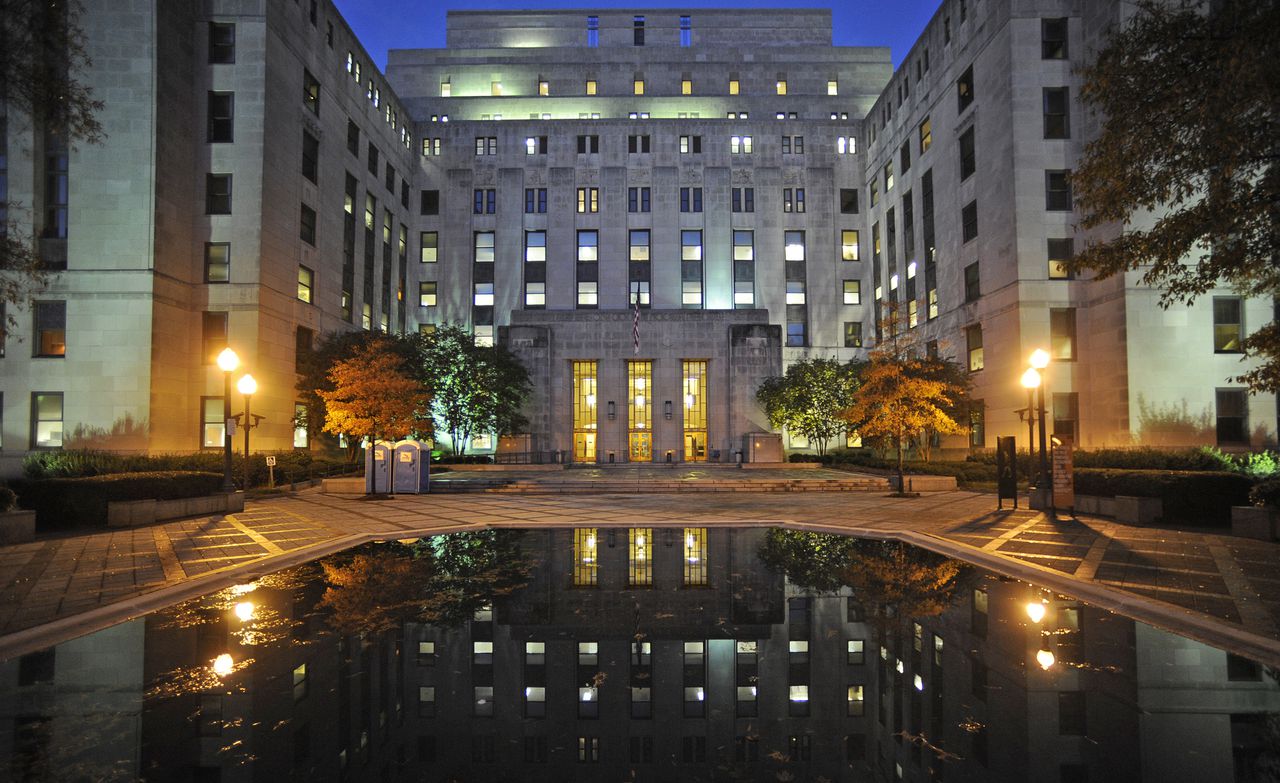Alabama judge says you have no right to know about lawsuit stemming from bribery scandal
This is an opinion column.
You want to know what happened when a former coal company executive – one convicted in the bribery of former Alabama Rep. Oliver Robinson – sued his powerful bosses and their powerful lawyers for putting him in that bind?
Of course you do. So do we.
But don’t hold your breath. Even in those polluted neighborhoods that started this thing. Finding basic facts – even the status of the case – is like, well, like finding a body in a Walker County coal mine.
Good luck.
Because a Jefferson County judge says “this is not a public issue.”
Despite the First Amendment. Despite Alabama open records laws. Despite appearances and the stench emanating from Judge Tamara Harris Johnson’s court.
“You just have to take my word,” she said.
Former Drummond Company VP David Roberson in 2019 sued coal giant Drummond Co., one of Alabama’s Big Mules, and Balch & Bingham, a Birmingham law firm and a Big Mule driver from way back. He claimed they hid and misrepresented information that led to his conviction.
RELATED: How Alabama conspired against its people
It is a suit that was dismissed, then taken all the way to the Alabama Supreme Court, which breathed life back into it. It is a case that grew out of a huge public controversy, with admitted bribes, important political figures, and profiteering off the continued pollution of north Birmingham neighborhoods.
Johnson has ordered the case sealed, lock, stock and coal-smoking barrel. Court dates are invisible on Alacourt, the state’s online court record system, and elsewhere. Even headings of past and scheduled hearings are stricken, because Johnson says it’s none of your business.
“This is not a public issue,” she told lawyers this week.
Why?
“It is strictly an employment matter,” she said.
As if that should make it a state secret.
We only know any of this because the Energy and Policy Institute sought to intervene in an attempt to open the records, and Alabama Media Group – that’s us at AL.com – submitted a brief supporting transparency.
Johnson did say in court that reporting of that particular hearing would be allowed.
“I have no problem with it being reported because what I want is for both parties, well all three parties, to get a fair trial.”
When a lawyer for EPI asked Johnson if she could review filings in the future to determine if they contained anything that should be kept under seal, she refused, saying she had about 800 cases and didn’t have time for such a review.
Asked later how many of those 800 cases were sealed, she said three to five were under seal.
This one, let’s face it, is special.
In a hearing on Monday to consider unveiling the case records, Johnson said she was intent on keeping it sealed to preserve the integrity of a jury. She also complained that case information had been leaked to an unnamed blogger.
“Information was leaked out, information was distorted, it was an absolute violation of my court order,” she said.
Michael Yancey, the lawyer for EPI, argued that more light, not less, would provide the world with true facts about the case.
But to no avail.
After the hearing Johnson ordered that “this court finds it necessary to seal the entire record of this case, including discovery, before trial and during trial.”
She wrote that she will reevaluate that decision after trial, but until then the “entire file … is sealed and marked confidential.”
You just have to take her word.
So a suit involving two of the most powerful businesses in Alabama, based on a claim that those two entities enabled a bribery of a once-beloved public official, is none of your business.
Just another employment case.
Just like any old case. But unlike 99.4 percent of Johnson’s other cases, according to the math from her own estimates.
If you think folks in Alabama get equal treatment under the law, just look at this case.
But you can’t.
John Archibald is a two-time Pulitzer winner at AL.com.
